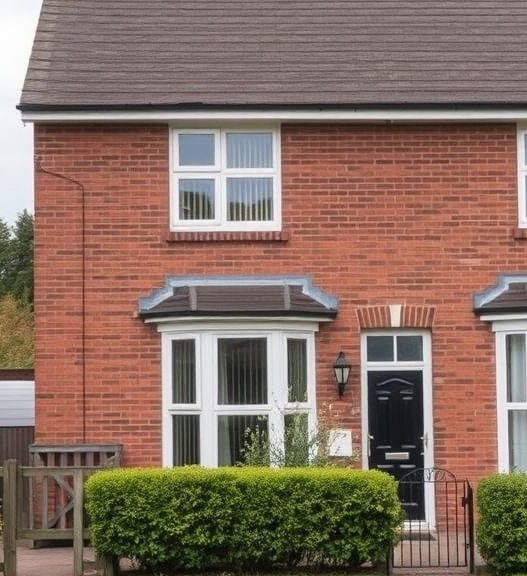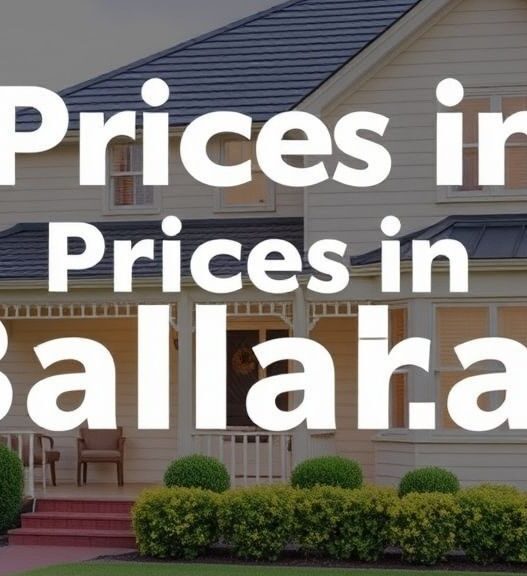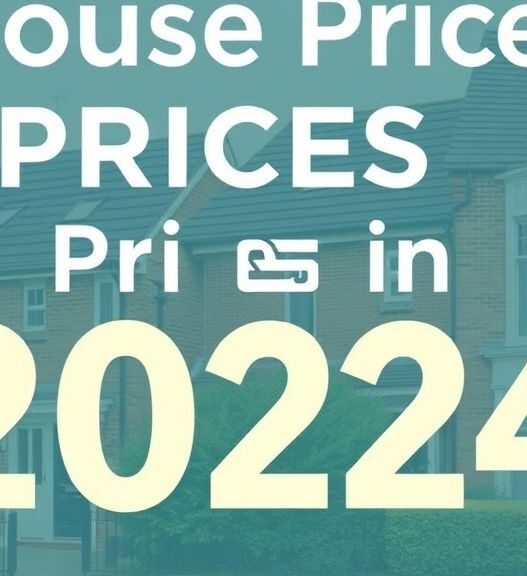Complete Guide to house prices
Introduction
Understanding house prices is very important. It affects buyers, sellers, and investors. Knowing the market helps you make smart choices. This guide will help you understand house prices better. We will cover many key aspects. You will learn how to analyze costs. We will also discuss long-term value. This information is useful for everyone. It helps whether you are buying or selling. It also helps if you are just curious. House prices change often. Many things can influence them. We will explore these factors in detail. This guide aims to simplify complex ideas. It will give you clear, actionable steps. You can use this knowledge right away.
Planning
Careful planning is essential. It helps you navigate the housing market. You need to consider many factors. These factors directly impact house prices. Good planning saves you time and money. It also reduces stress. Start by defining your goals clearly. Think about what you want to achieve. Are you buying a first home? Are you investing? Your purpose guides your research. Understanding the market is a big part of planning. It helps you set realistic expectations. This section will highlight key considerations. These points are crucial for any housing decision. They help you understand market dynamics.
Key Considerations
-
Location is paramount. The area where a house sits greatly affects its value. Desirable neighborhoods often have higher house prices. Proximity to schools, jobs, and amenities matters. Good transport links also boost value. Research local crime rates and future developments. A growing area might see prices rise. A declining area could see prices fall. Always check the local market trends.
Different parts of a city can have vastly different values. Even within one neighborhood, street appeal varies. Corner lots might be more expensive. Lots with good views also command higher prices. Consider the future development plans for the area. New infrastructure can increase property values. Conversely, new industrial zones might decrease them. Always visit the location at different times. This helps you get a true feel for the neighborhood.
-
Market trends influence everything. The overall economy impacts house prices significantly. A strong economy often means higher demand. High demand usually pushes prices up. Interest rates also play a big role. Lower interest rates make mortgages cheaper. This encourages more people to buy homes. Higher rates can slow down the market. Keep an eye on national and local economic news.
Look at recent sales data in your target area. This shows you what homes are actually selling for. Pay attention to how long homes stay on the market. A quick sale suggests a hot market. A long listing period might mean prices are too high. Understand if it is a buyer’s or seller’s market. This knowledge gives you an advantage. It helps you negotiate better.
-
Property type matters greatly. Different types of homes have different values. A detached house usually costs more than a townhouse. Condominiums have their own pricing structures. The size of the home is also a factor. More bedrooms and bathrooms often mean higher prices. The age and condition of the property are important. A newly built home might cost more. An older home might need costly repairs.
Consider the architectural style of the house. Some styles are more popular than others. Unique features can add value. However, they might also limit potential buyers. Think about the land size as well. A larger lot can increase the overall value. This is especially true in urban areas. Always assess the property’s potential for future growth.
-
Interest rates affect affordability. Mortgage interest rates directly impact monthly payments. Lower rates make homes more affordable for buyers. This can increase demand for housing. Increased demand often leads to higher house prices. Higher rates can reduce buyer purchasing power. This might slow down the market. Keep track of central bank announcements.
Even a small change in interest rates can have a big effect. It changes how much a buyer can borrow. It also changes their monthly budget. Understand how different loan types work. Fixed-rate mortgages offer stability. Adjustable-rate mortgages can change over time. Your chosen mortgage type affects your long-term costs. This impacts your overall financial health.
-
Economic indicators provide insights. Look at unemployment rates. Low unemployment often means more people can afford homes. This boosts demand. High unemployment can lead to lower demand. Consumer confidence is another key indicator. When people feel secure, they are more likely to buy. Inflation also plays a role. Rising costs can impact construction and labor. This can push up new house prices.
Gross Domestic Product (GDP) growth is also important. A strong GDP suggests a healthy economy. This generally supports higher property values. Population growth is another factor. More people in an area means more demand for housing. This can lead to increased house prices. Always consider these broader economic signals. They offer clues about future market movements.
Cost Analysis
Analyzing costs is a critical step. It helps you understand the true value of a property. This goes beyond the listing price. You need to consider all associated expenses. These include taxes, fees, and potential repairs. A thorough cost analysis prevents surprises. It helps you budget effectively. It also ensures you are making a sound investment. Understanding market value is key here. You want to pay a fair price. This section will help you compare different options. It will show you how to evaluate various properties. We will look at how different features affect value. This analysis is vital for smart decisions.
Price Comparison
Comparing different properties is essential. It helps you understand market value. This table shows hypothetical house prices. It highlights how features impact cost. Remember, actual house prices vary greatly. This is just an example for comparison.
| Property Type | Bedrooms | Bathrooms | Location Rating (1-5) | Estimated Price Range |
|---|---|---|---|---|
| Small Apartment | 1 | 1 | 3 | $250,000 – $350,000 |
| Townhouse | 3 | 2.5 | 4 | $450,000 – $600,000 |
| Detached House | 4 | 3 | 5 | $700,000 – $1,200,000 |
| Rural Property | 3 | 2 | 2 | $300,000 – $500,000 |
| Luxury Condo | 2 | 2 | 5 | $600,000 – $900,000 |
This table shows how different factors influence house prices. A detached house with more rooms costs more. A better location also increases the price. Rural properties might be cheaper per square foot. However, they might lack amenities. Luxury condos offer convenience. They often come with higher price tags. Always compare similar properties. Look at homes with similar sizes and features. Check recent sales in the same neighborhood. This gives you the best idea of fair market value. Do not just look at listing prices. Some homes sell for less than asking. Others sell for more. Understanding these nuances is key. It helps you make a competitive offer.
Step-by-Step Guide
Researching house prices can seem daunting. However, it is a straightforward process. Breaking it down into steps helps. This guide provides clear instructions. You can follow these steps easily. They will help you gather good information. This information is vital for your decisions. It empowers you to act confidently. You will learn how to find reliable data. You will also learn how to interpret it. This process helps you understand the market deeply. It prepares you for negotiations. It also helps you avoid common pitfalls. Each step builds on the previous one.
DIY Instructions
-
Define your needs and budget. First, decide what you truly need in a home. How many bedrooms do you require? What kind of neighborhood do you prefer? Set a clear budget range. This includes your down payment and mortgage pre-approval. Knowing your limits helps narrow your search. It prevents you from looking at unsuitable properties. This initial step saves much time later.
Consider your lifestyle needs carefully. Do you need a large yard? Is public transport important? Think about your long-term plans. Will your family grow? These factors influence the type of home you seek. Your budget must be realistic. Factor in closing costs and moving expenses. A clear budget prevents overspending. It keeps your search focused and efficient.
-
Research online property listings. Use major real estate websites. These sites list many homes for sale. Filter your search by location, price, and size. Look at photos and virtual tours. Pay attention to property descriptions. Note down addresses of interesting homes. These listings give you a general idea of house prices. They show what is currently available.
Explore different platforms. Some sites specialize in certain property types. Others offer detailed neighborhood data. Look at how long properties have been listed. This can indicate demand. Check if prices have been reduced. This might signal a slow market. Online research is your first big data source. It provides a broad overview of the market.
-
Analyze comparable sales data. This is called “comps” in real estate. Find homes similar to yours that recently sold. Look for properties in the same neighborhood. They should have similar features and size. Recent sales are the best indicator of current house prices. Websites often provide this data. Your real estate agent can also help.
Focus on sales from the last three to six months. Older sales might not reflect current market conditions. Adjust for differences in condition or features. A renovated kitchen adds value. An outdated bathroom might reduce it. This analysis helps you determine fair market value. It is crucial for making an informed offer. It gives you strong negotiation power.
-
Visit open houses and schedule viewings. Online research is good, but seeing homes is better. Attend open houses in your target areas. This lets you see many homes quickly. Schedule private viewings for serious contenders. Pay attention to the home’s condition. Look for signs of wear or needed repairs. Ask questions about the property’s history.
Observe the neighborhood during your visits. How is the traffic? Are there amenities nearby? Talk to neighbors if possible. They can offer valuable insights. Take notes and photos during your visits. This helps you remember details later. It also helps you compare properties effectively. Seeing homes in person provides a true sense of value.
-
Consult with real estate professionals. A good real estate agent is invaluable. They have access to detailed market data. They understand local house prices deeply. An agent can provide expert advice. They can help you interpret market trends. They also assist with negotiations. A mortgage broker can help with financing.
Interview a few agents before choosing one. Look for someone with local expertise. They should understand your specific needs. Ask about their experience with similar properties. A good agent protects your interests. They guide you through the complex process. Their insights are crucial for making smart decisions. They can help you find the best house prices.
-
Get a professional appraisal. Before finalizing a purchase, get an appraisal. An independent appraiser assesses the property’s value. They use specific criteria and market data. This provides an unbiased opinion of value. It protects both the buyer and the lender. The appraisal ensures the house is worth its price. It is a vital step in the buying process.
The appraiser considers many factors. These include the home’s size, condition, and features. They also look at recent comparable sales. Their report gives a clear valuation. If the appraisal is lower than the offer, you can renegotiate. This step provides peace of mind. It confirms you are paying a fair price. It is a safeguard against overpaying.
Maintenance Tips
Maintaining your home is very important. It protects your investment over time. Good maintenance helps preserve its value. It can even increase future house prices. Neglecting upkeep can lead to costly repairs. It can also reduce your home’s appeal. This section offers practical tips. These tips help you keep your home in top condition. They focus on long-term care strategies. Regular maintenance is a smart financial move. It ensures your home remains a valuable asset. It also makes your living space more enjoyable.
Long-Term Care
-
Perform regular preventative maintenance. Do not wait for problems to arise. Check your roof for damage annually. Clean gutters regularly to prevent water issues. Inspect your HVAC system twice a year. Change air filters often. Test smoke detectors and carbon monoxide alarms. These small tasks prevent big problems. They save money in the long run.
Regular checks extend the life of your home’s systems. They also help maintain its structural integrity. A well-maintained home is more attractive to buyers. This positively impacts future house prices. Create a maintenance schedule. Stick to it consistently. This proactive approach is always best. It protects your investment effectively.
- Invest in smart, value-adding renovations. Not all renovations increase value equally. Focus on updates that



















